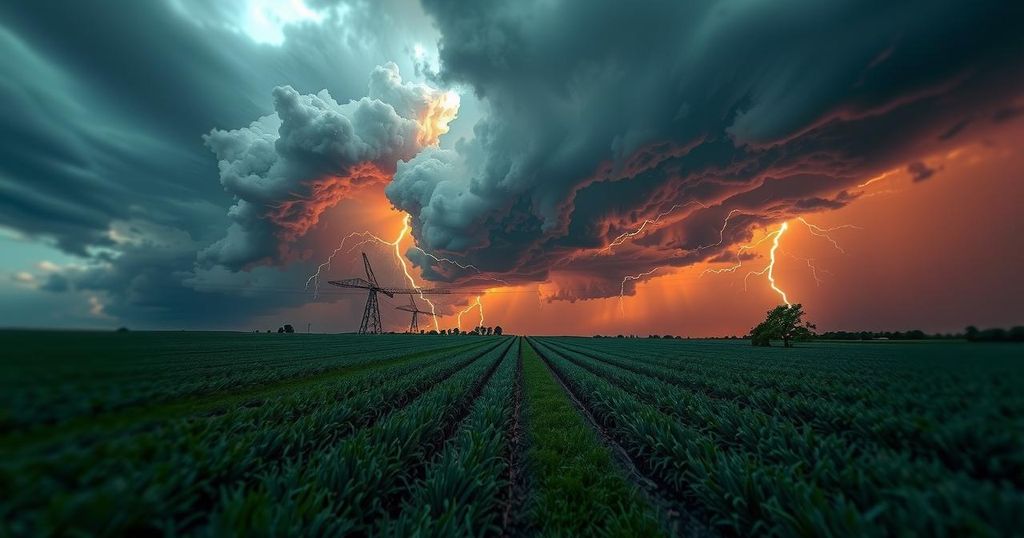A recent study indicates that human-caused climate change has significantly intensified the ten deadliest extreme weather events of the past two decades, with over 570,000 fatalities across various regions. This research highlights how climate change has exacerbated conditions leading to catastrophic storms, floods, and heatwaves, emphasizing the urgent need for political action to address fossil fuel emissions and enhance disaster preparedness.
Recent analyses have revealed that human-induced climate change has intensified ten of the deadliest extreme weather events over the past two decades, resulting in heightened frequency and severity of storms, heatwaves, and floods that have collectively claimed over 570,000 lives across Europe, Africa, and Asia. This research was conducted by the World Weather Attribution (WWA) group at Imperial College London, who utilized new methodologies to link climate change’s impact to complex weather occurrences. Dr. Friederike Otto, a leading scientist in the study, remarked on the critical implications for policymakers, asserting that continuous fossil fuel consumption would perpetuate global suffering. The study examined the International Disaster Database for the ten most lethal weather phenomena since 2004, which includes a catastrophic drought in Somalia in 2011, attributing the extreme low rainfall to climate change effects. In addition, the research identified significant fatalities linked to European heatwaves in 2015, 2022, and 2023, as well as tropical cyclones affecting Bangladesh, Myanmar, and the Philippines. The authors cautioned that reported deaths from such events may be underreported, especially in vulnerable regions. Moreover, the pioneering work by Dr. Otto and Dutch climatologist Geert Jan van Oldenborgh allowed for a nuanced understanding of how extreme weather increasingly correlates with rising global temperatures due to anthropogenic climate change. The findings underscore the necessity for enhanced global preparedness and resilience against the changing climate, as even minor increases in temperature are likely to yield further extreme weather incidents.
The increasing severity and occurrence of extreme weather events have been linked to human-induced climate change, raising critical concerns for global health and safety. The World Weather Attribution group has been at the forefront of investigating these connections, offering scientific insights into how climate change affects specific weather phenomena. The methods devised by Dr. Otto and Dr. van Oldenborgh, which assess the probability of extreme events occurring under current climate conditions versus a hypothetical world without industrial carbon emissions, have provided valuable tools for understanding the impact of climate change on weather-related fatalities and disasters.
The analysis conducted by the World Weather Attribution group emphasizes the direct correlation between human activity, particularly fossil fuel consumption, and the increase in lethal weather events. With thousands of lives lost due to climate change exacerbated disasters, it is imperative that political leaders prioritize transitions to sustainable energy sources and enhance global resilience against the foreseeable impacts of climate change. Immediate efforts are required to mitigate impending adverse outcomes as temperatures continue to rise.
Original Source: www.bbc.com






